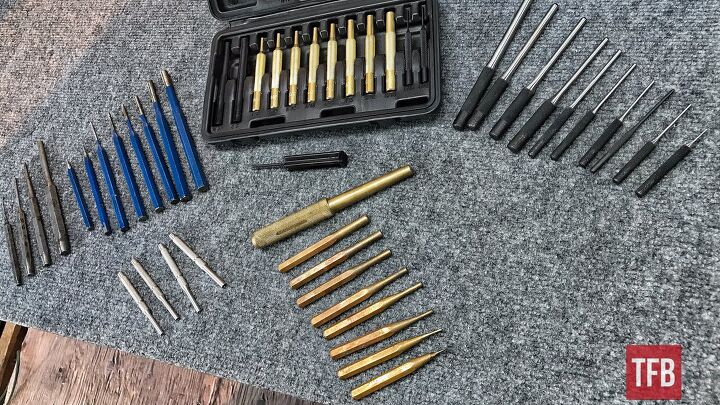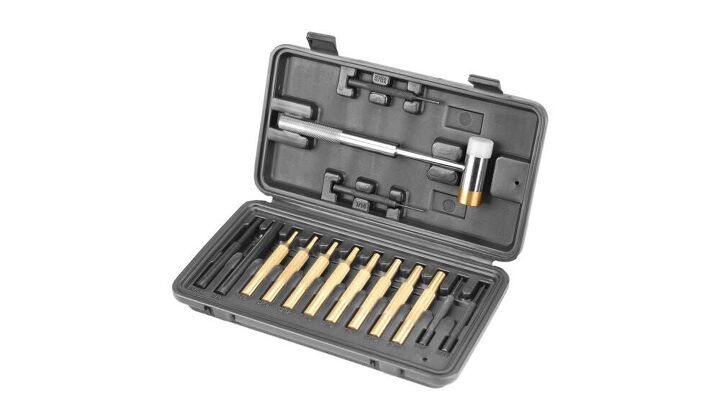Welcome everyone to the TFB Armorer’s Bench! As mentioned in the little blurb, this series will focus on a lot of home armorer and gunsmith activities. In this article sponsored by Wheeler, Tipton, Caldwell, and Frankford Arsenal, I decided to touch on the topic of punches. More specifically the topic of punches dedicated, intended to be used for, or ones that can be used for gunsmithing. I admit at a base level it may seem mundane but punches are an essential tool for any would-be armorer or gunsmith. I had previously briefly touched on punches in my second armorer’s bench article covering essential gunsmith tools. That article was only at a glance. Let’s get into punches under the microscope!
TFB Armorer’s Bench: Techniques and Types – Punches
Welcome to our recurring series of Armorer’s Bench which is made possible and brought to you by Wheeler, Tipton, Caldwell, and Frankford Arsenal who are our sponsors. Here, we at TFB hope to inform, entertain, and even inspire any would-be gunsmith or armorer out there. Ideally, with the information I provide and with the help of our sponsors, you can have some useful knowledge pertaining to the conservation and improvement of firearms technology while at the same time sharing experiences and teaching each other new tips and tricks along the way in the comments. Digging deep into what it is to be an armorer or gunsmith has significance but what is important is what those people do to show they’ve earned that title. I am happy to share my experiences and knowledge and hope it is informative!
Make your personal safety a priority:
- Practice proper gun safety. Always make sure before the firearm hits your bench that it is unloaded and safe to be handled.
- Wear the proper safety equipment. The main one would be safety glasses (decent ones) since parts are often under spring tension and you may work with high RPM tools. Other honorable mentions would be latex gloves or a respirator when working with potentially harmful solvents and oils. Also hearing protection when working with loud machinery or test-firing firearms.
- Modifications, alterations, and customizations will void your firearm’s warranty 9.5 times out of 10. Please take that into consideration before attempting any at-home gunsmithing.
- If you are unsure about proper safety practices, disassembly procedures, or warranty standards, stop, put down the tools, and consult a competent gunsmith.
Being Realistic: Punches
Punches are rod-like tools used to indent, move material, or drive parts, pieces, and pins out of workpieces. Punches used in gunsmith work are usually used to drive pins out of firearms but they also have a place in stamping information or in staking material (like on an AR15 castle nut).
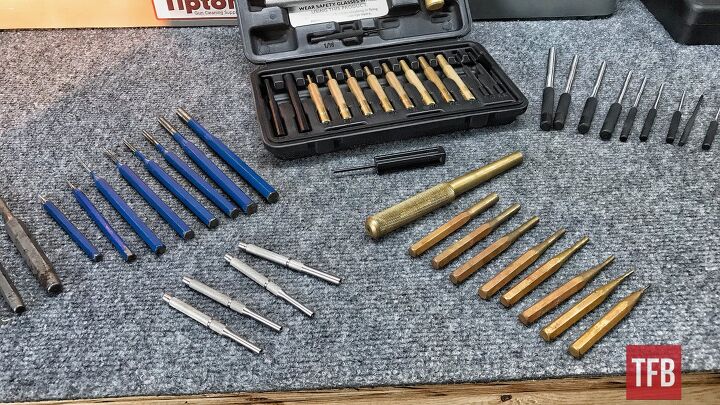
There are many different “types” of punches. For today’s overview on types of punches, we are gonna focus on the solid style punches that are made to punch a pin into or out of a workpiece. Honorable punch types could be ones that are designed to make impressions or move material (great for staking castle nuts on AR15s) such as center, dot (basically a small center punch), prick, and transfer punches. There are more job-specific punches like letter punches, drive punches, hollow punches, or bell punches (made for marking the circumference of a hole). Those were just a few I could grab from my mind in the short term but as far as the task at hand today the rest are below!
Types: Steel Punches
These are pretty straightforward run-of-the-mill tools. They are tapered steel punches that will normally come in a variety pack of sorts or some more expensive brands will sell them one at a time. They are great for the real brute force jobs but be careful not to slip because steel on steel will leave marks, scratches, and gouges. The difference in prices a lot of the time is a brand thing but the quality is usually determined by the quality of heat treatment if any.
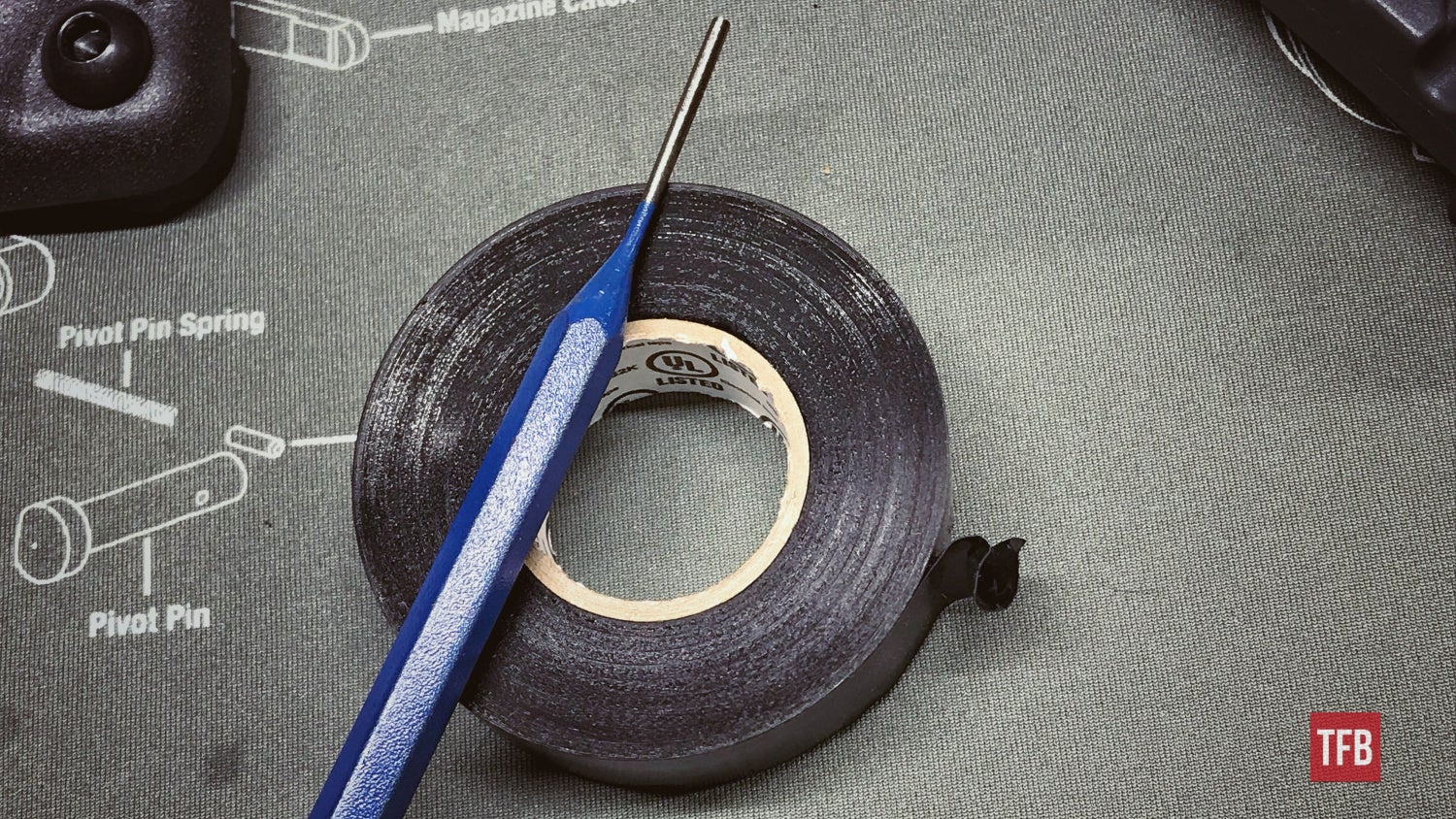
Punches need to have some flexibility in them so that they do not become brittle and snap under force but this comes at a price of bending sometimes. Usually, if a punch bends, it is either a lesser quality punch or it’s time to get a different size of punch or bigger hammer. If your steel punch bends beyond a certain point and you bend it back it has the potential to snap. Be wary because this can be especially catastrophic if a broken punch gets stuck inside of a workpiece.

Types: Brass Punches
Brass punches are a mainstay for gunsmiths and armorers. They are affordable which makes them fairyland expendable. They don’t last if they are abused but the whole point of them is to be more malleable and less marring than steel. Emphasis on the less marring bit there since a slip or tap with a brass punch on black steel can usually be wiped off or at least the chances of a scratch are slim. Brass is the go-to for this reason.
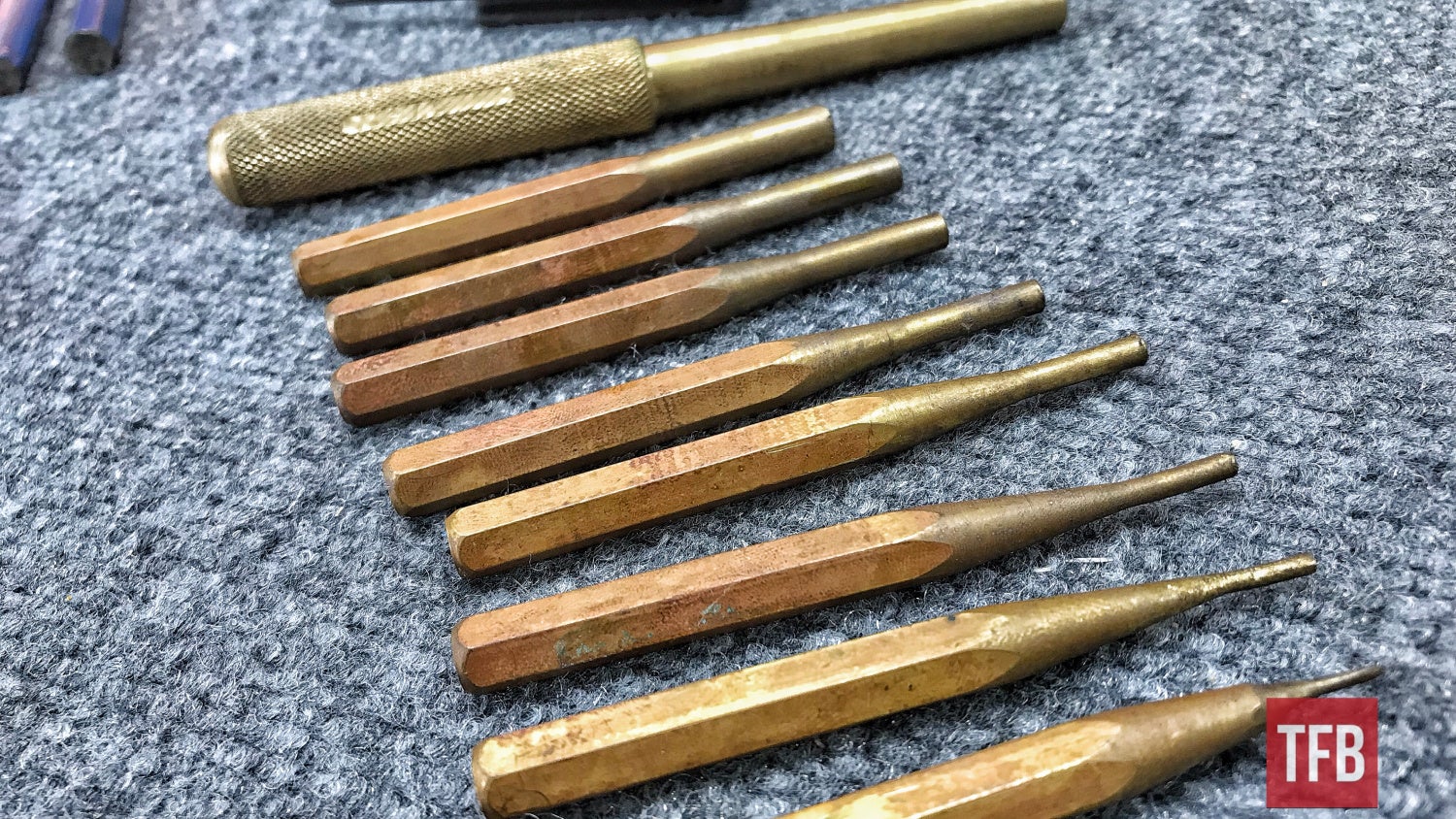
It is fair to mention that brass punches are often sold in kits that include brass hammers. Besides being more gentle on the finish of a workpiece, both are handy because brass does not produce sparks that could otherwise ignite nearby flammable materials. In short, brass punches are made so more damage is done to the punch than to the workpiece ideally.
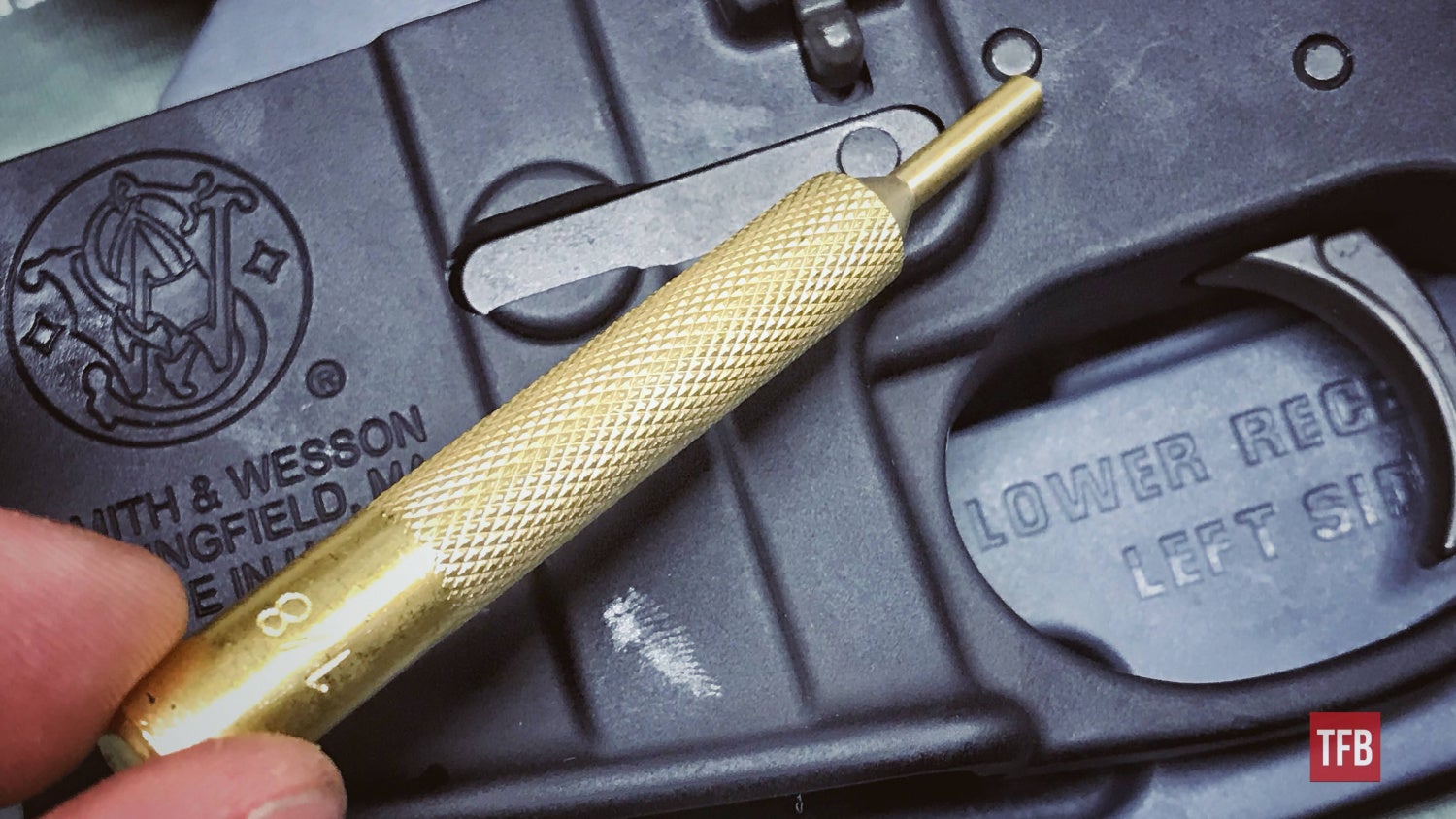
Types: Nylon Punches
Nylon punches are about as non-marring as it gets. Personally, I will admit I rarely use nylon punches unless they are within reach when I need a punch and I know it can handle the task. I would compare the idea of using a nylon punch to a wooden one (if that existed, they do not really for good reasons). They are soft, they tend to not leave any marks, and they are cheap. A lot of times I have seen nylon punches being advertised for removing dovetailed sights. They work great for that as long as the sight is not as tight as possible. They also absorb a little bit of shock so it makes it harder to harm a workpiece. They are similar to brass punches in that they are made to take more abuse than they give.
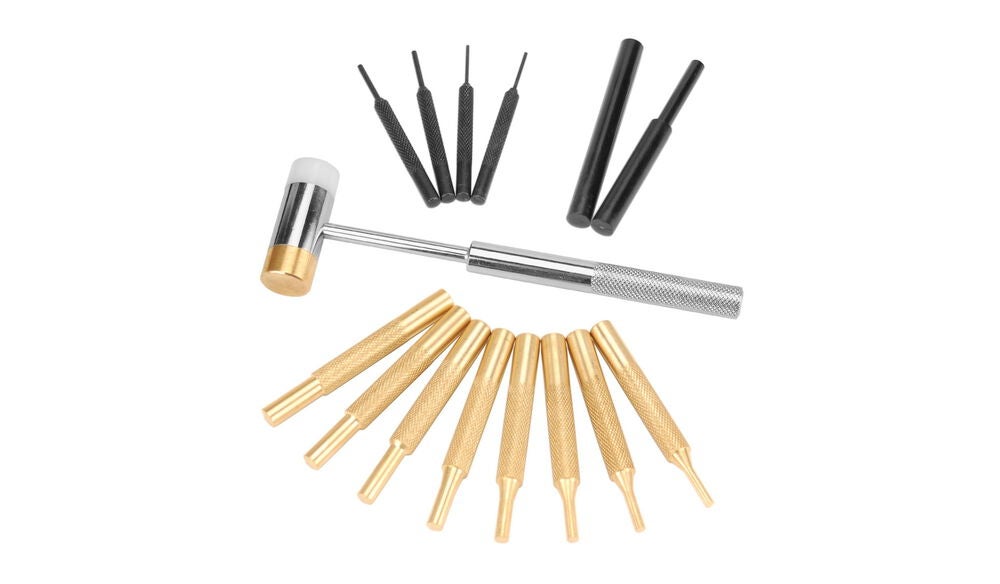
Wheeler Hammer & Punch Set. Nylon Punches Upper Right
Types: Roll Pin Punches
Roll pins are pins that are slit lengthwise and often need a special punch. These are another straightforward addition to the punch lineup but they are often overlooked or dismissed. Roll pin punches are specially sized punches that have a small rounded nub on the tip. The rounded portion is made to rest and center itself on the mouth of a roll pin. The shoulders beyond the rounded portion do that actual heavy lifting and make full contact with the roll pin itself.
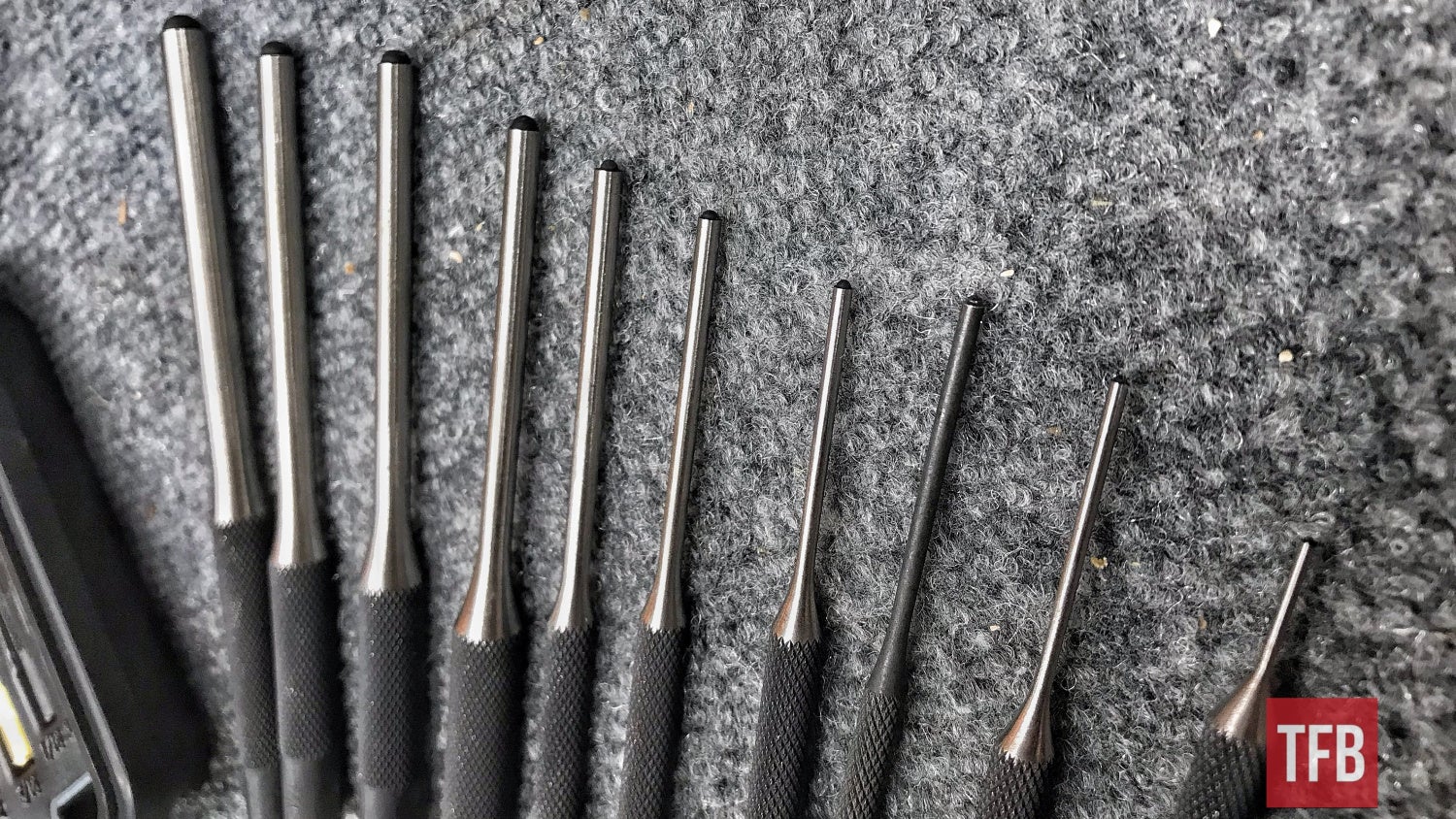
The reason I mentioned that these punches often get overlooked or dismissed is that arguably regular punches can punch out a roll pin. This is mostly true. The part where you may run into trouble is a roll pin that may be just the right size where a normal set of punches will not do the job. One punch maybe is just too small and gets caught inside the roll pin. This could result in breaking off the tip of a punch or damaging your workpiece. One punch may be slightly too big and not be able to reach the pin. Roll pin punches are made to be just right
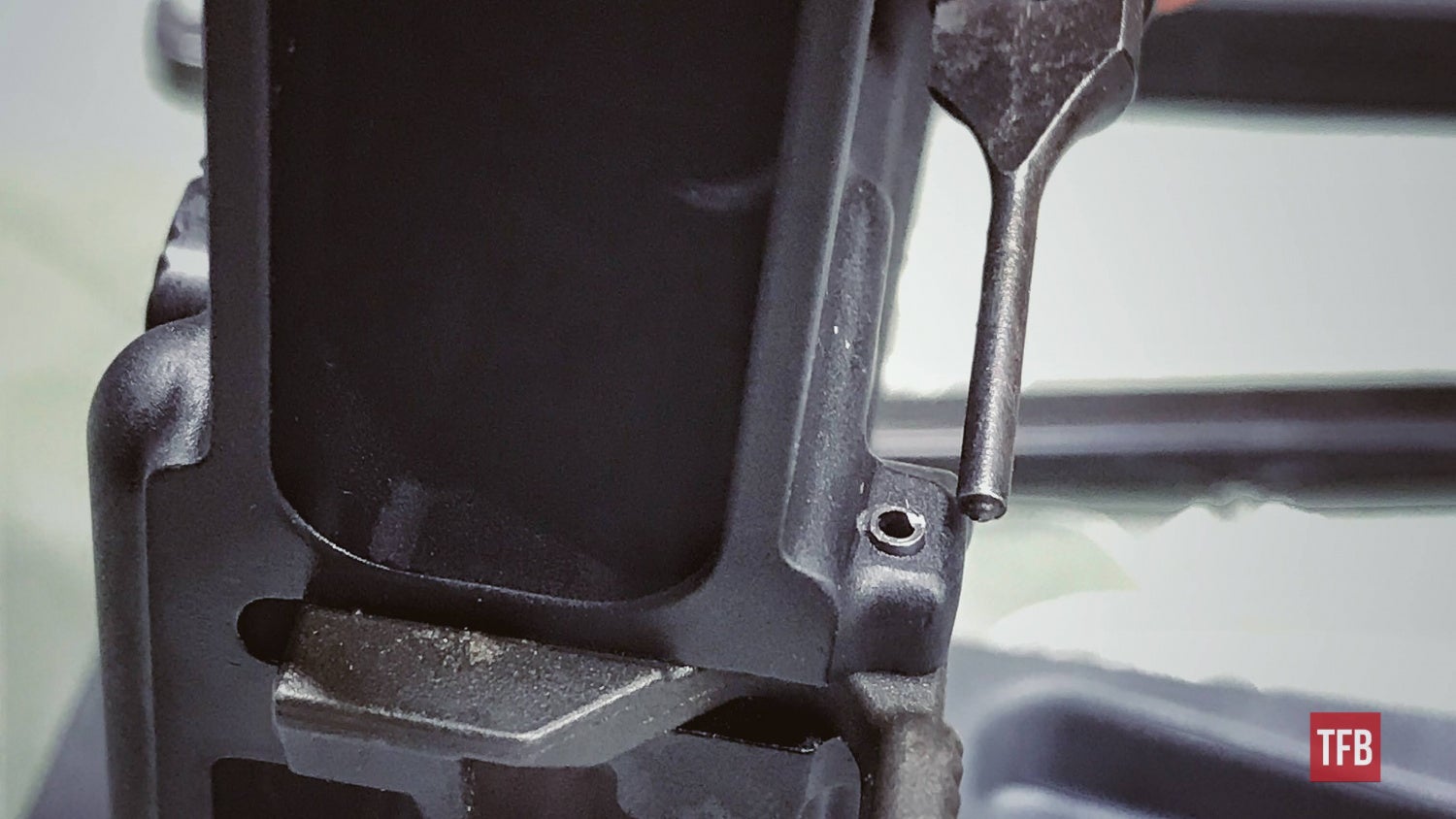
Types: Roll Pin Starter Punches
These are underutilized just as the roll pin punches are. In order to get a roll pin back into its hole, they need to be supported and stay centered. They are also springlike in their nature which makes them potentially bigger than the hole at first before being forced in.
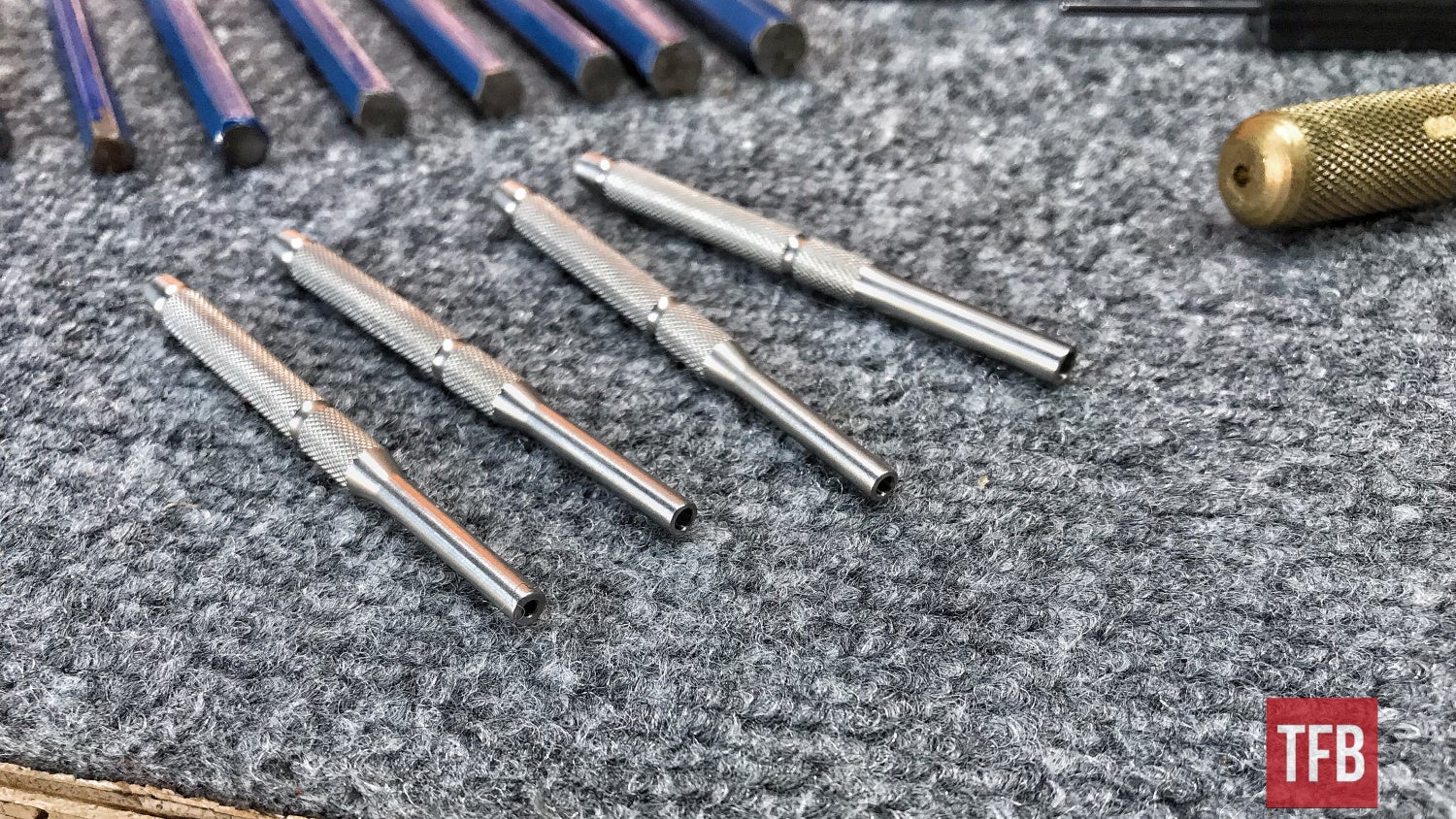
Roll pin punches can be used to put them back in but they are not as sturdy as it gets. Roll pin starter punches have hollowed-out recces at their point. These pockets are made to grasp roll pins and hold them center while being hammered into their intended holes
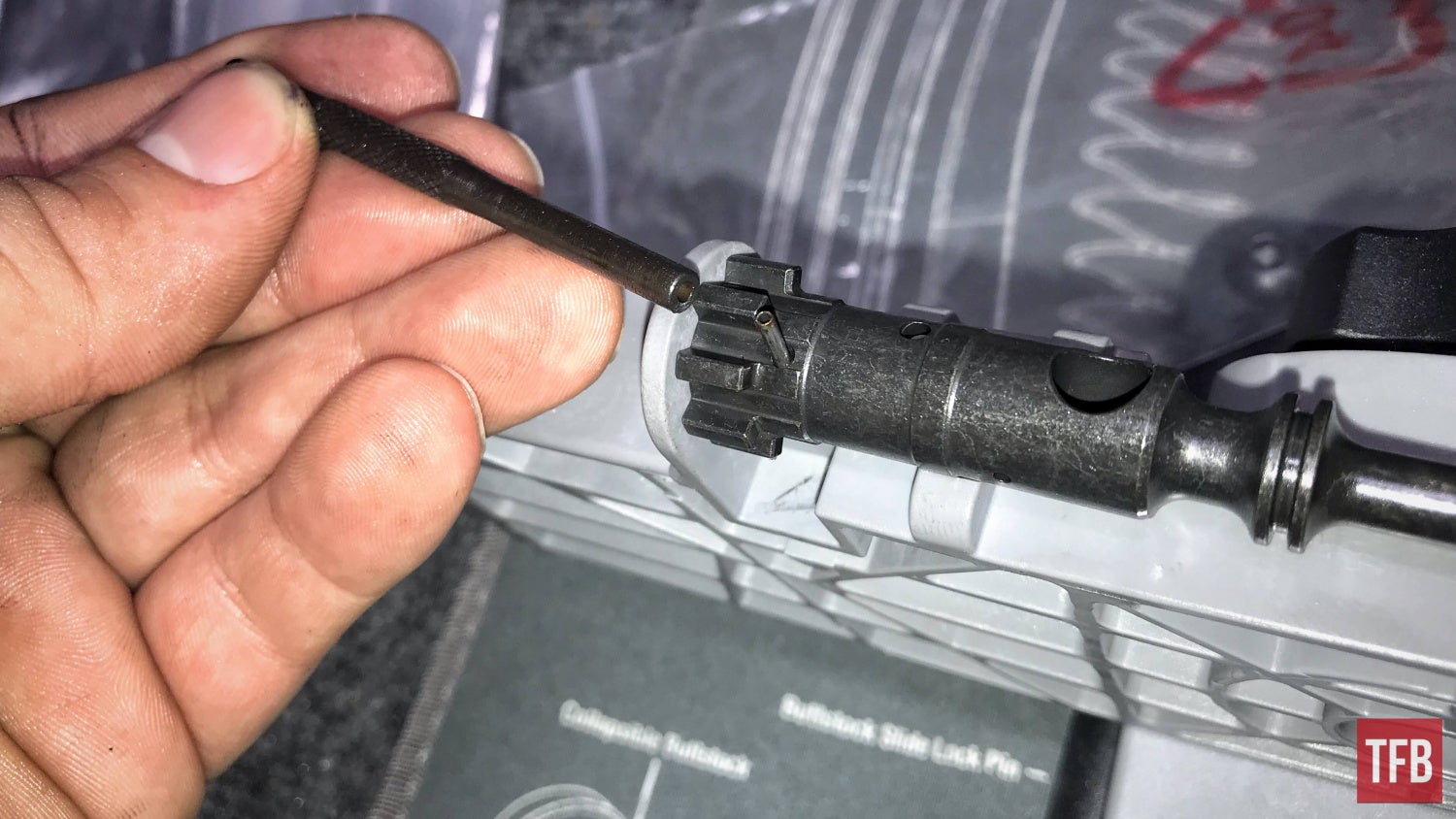
Techniques/Tips: Punches
- Punches can be wrapped in electrical tape in order to prevent scratch when being hammered parallel to a workpiece. Think punching out an AR15 bolt release roll pin.
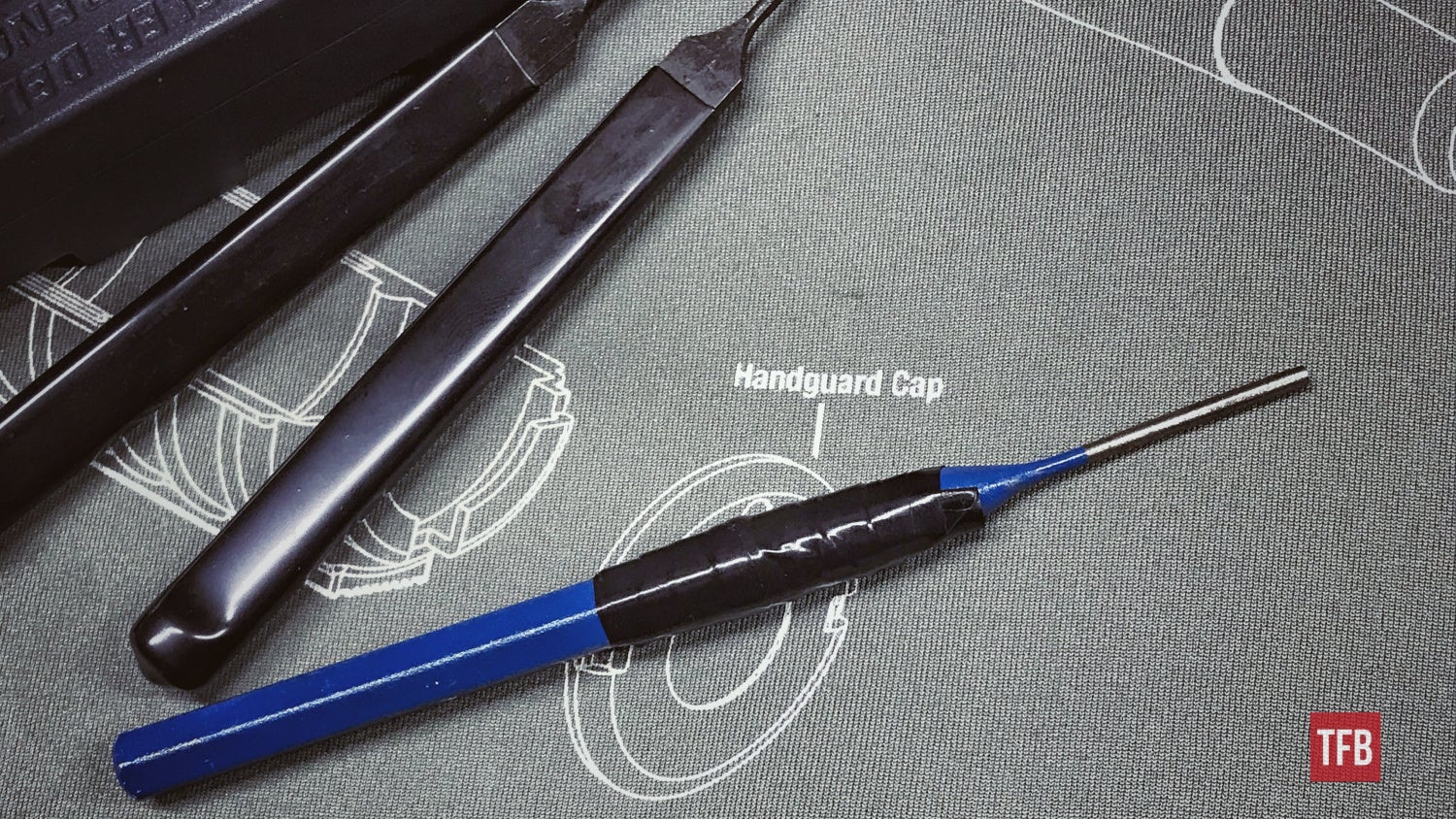
- A punch can be made from just about anything. Avoid soft materials like wood because not only does it absorb the shock you are trying to transfer to pins but it also is prone to breakage.
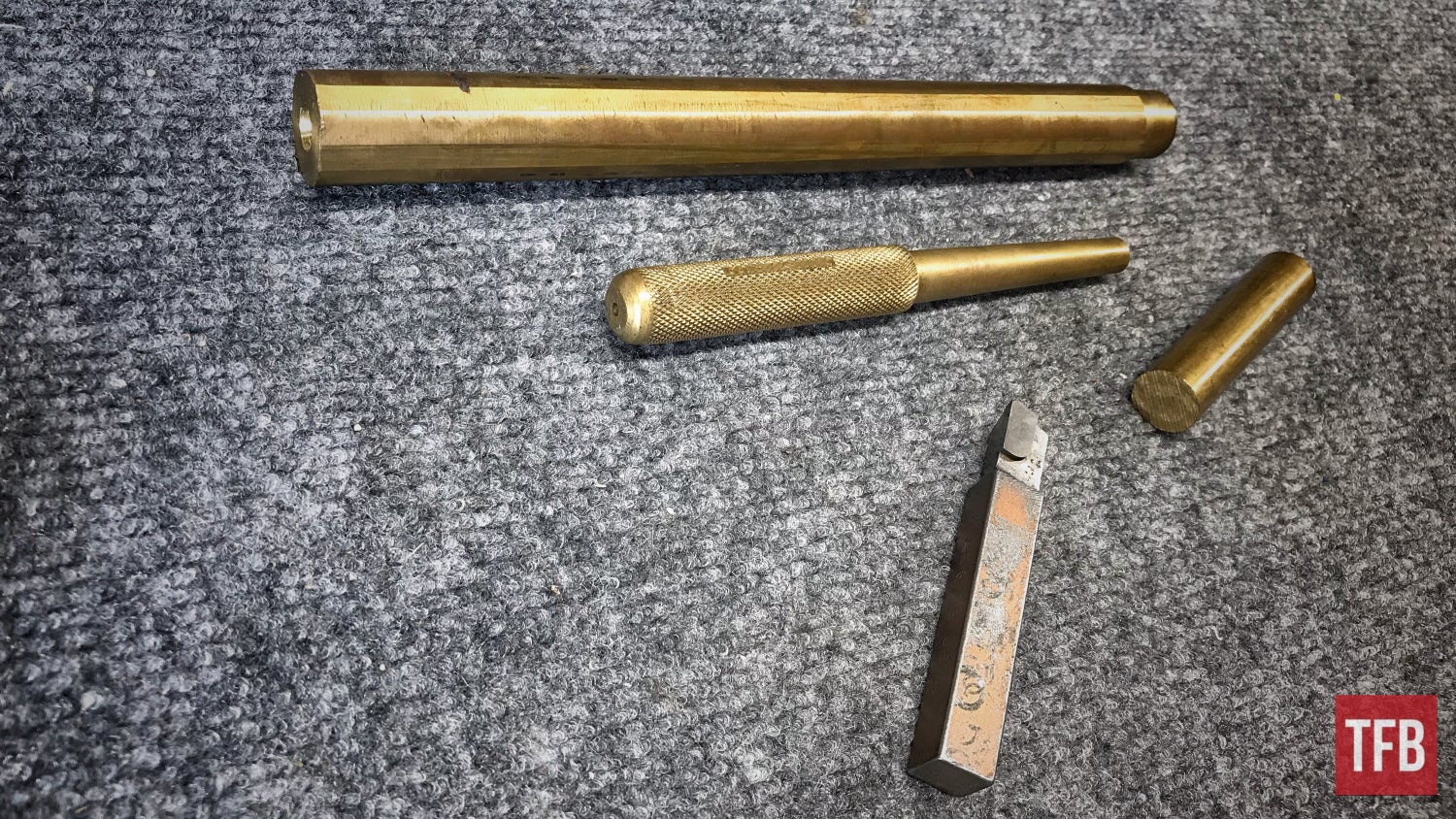
- An old, broken, or bent punch can be repurposed and machined or filed down to be a different/custom-sized punch.
Closing Thoughts: Techniques and Types – Punches
So there you have my quick breakdown of punches. In the end, I highly recommend getting the right punch for the right pin so to speak. That will save you more pain in the long run. What tool should I cover another time? As with any sort of tips and tricks style article, I encourage all the folks out there to talk with one another in the comments and offer up any information I may have missed. Be safe out there and see you next time!
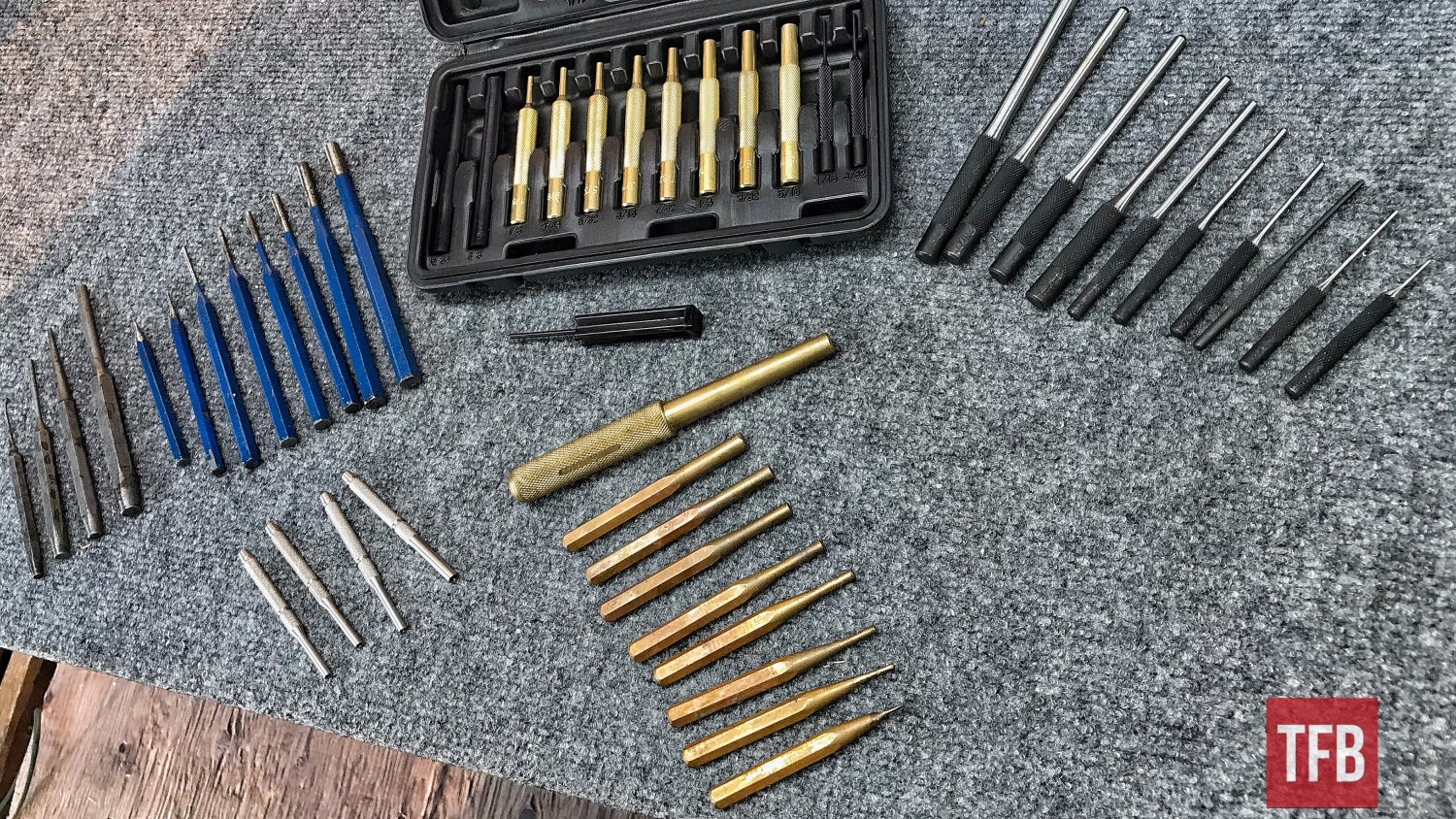
As always, thank you for reading TFB! Be safe out there, have fun while shooting, and we will see you next time for the TFB Armorer’s Bench brought to you by Wheeler, Tipton, Caldwell, and Frankford Arsenal! Also, let us know what you think in the comments below! We always appreciate your feedback.
Caldwell Pro Range Glasses, Clear

The Caldwell® Pro Range Glasses feature a stylish wrap-around design and are a great choice for all shooters. They feature an adjustable nose piece and temples for all day comfort. The scratch resistant lens meets ANSI Z87.1 standards and offers 99.9% UV protection.
Wheeler Brass Punch Set
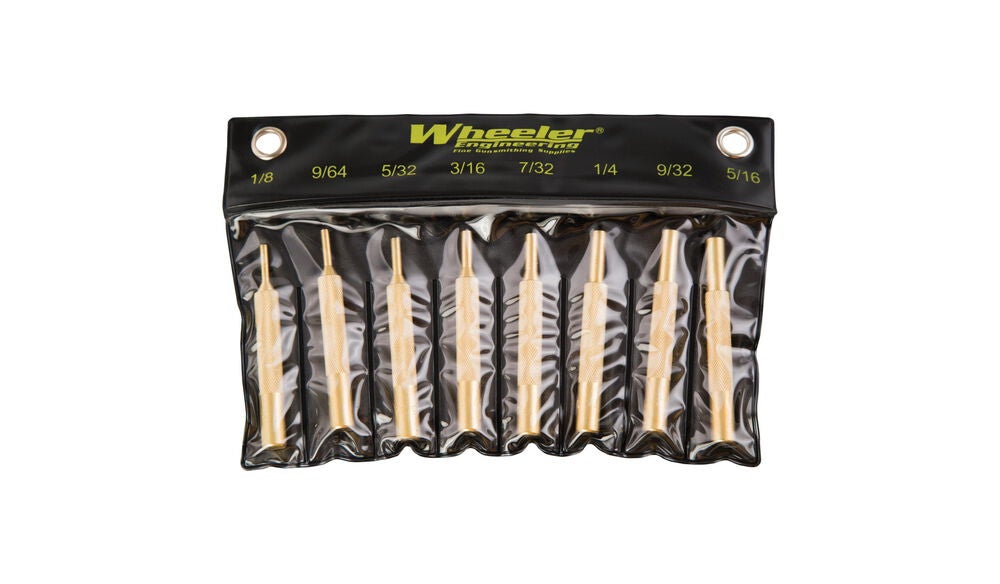
Set includes: 1/8″, 9/64″, 5/32″, 3/16″, 7/32″, 1/4″, 9/32″, 5/16″.
Wheeler Hammer and Punch Set, Plastic Case
The Wheeler® Hammer and Punch Set includes a polymer/brass combination hammer, eight precision brass punches, four steel punches and two plastic punches. It comes in a handy molded case. It makes for a great tool for driving pins or drifting sights at the shooting range, or on your gunsmithing bench
Wheeler Master Roll Pin Punch Set
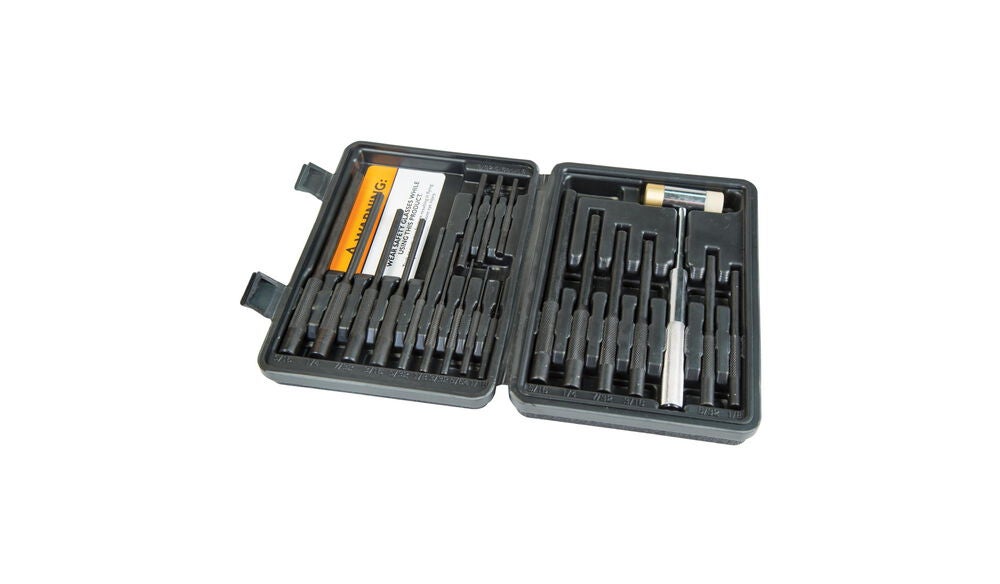
We have combined the Roll Pin Starter Set and the Ball Profile Pin Punch Set with a gunsmithing hammer into one comprehensive kit.
Wheeler AR-15 Roll Pin Install Tool Kit
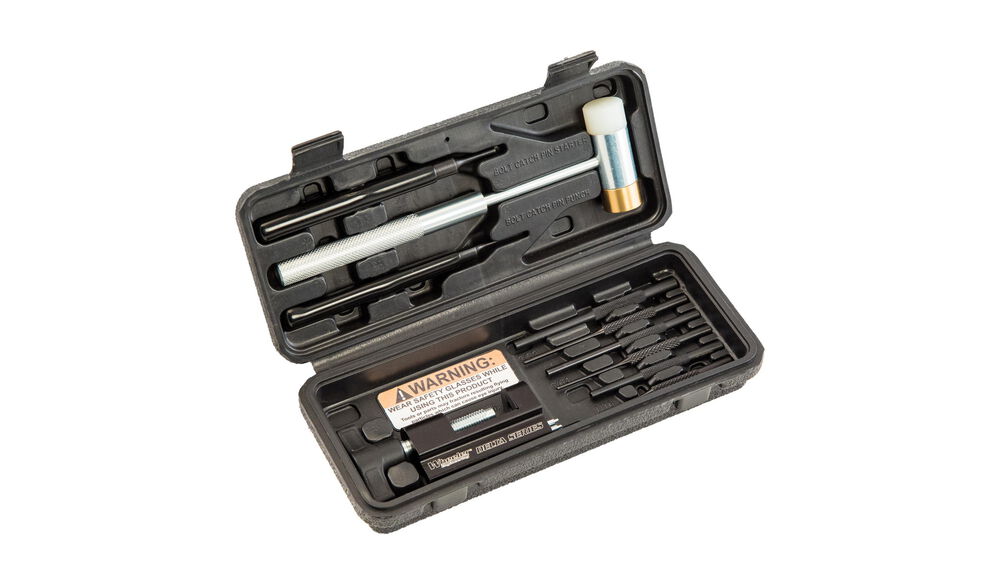
Complete kit for installing every AR roll pin without damaging or marring your firearm! Kit includes: Bolt Catch Install Tool Kit, AR Trigger Guard Install Tool, (3) Starter Punches and (3) Driver Punches, Two Sided Hammer, and Custom Fit Storage Case.
Frankford Arsenal Stainless Steel Dial Caliper
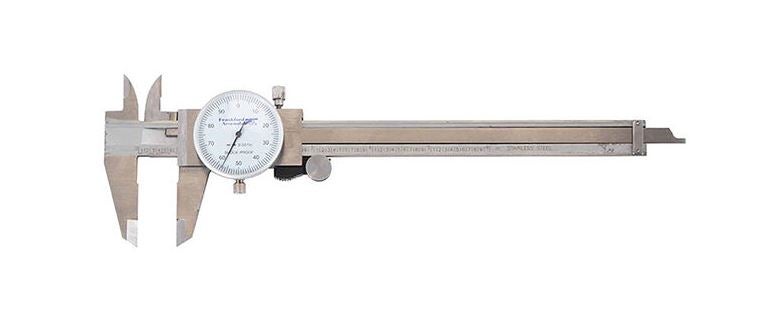
Reloading ammunition requires attention to many critical cartridge dimensions, including case length, neck and base diameters, overall length, primer pocket depth, etc. Verifying these dimensions is quick and convenient with the Frankford Arsenal® Stainless Steel Calipers. These calipers are accurate to within .001″. The calipers allow you to measure inside and outside diameters, plus depths. You will find them useful for many measuring tasks on and off the reloading bench. Packaged in a convenient and protective case.
Tipton ULTRA GUN VISE

The Tipton® Ultra Gun Vise features a completely modular interchangeable design to allow virtually any shape firearm or crossbow to be cleaned and worked on with ease. The ball and socket articulating clamp pads allow for the pads to adapt to any surface. The dual clamp technology rigidly holds any firearm shape in place, while the rigid steel tube frame structure allows for complete access to your firearm or crossbow. The front and rear clamps are both height and length adjustable, and feature fast-turn knobs allowing for quick clamping. The solvent-resistant accessory and tool trays are movable and removable to stand up to even the toughest jobs.
 Your Privacy Choices
Your Privacy Choices
